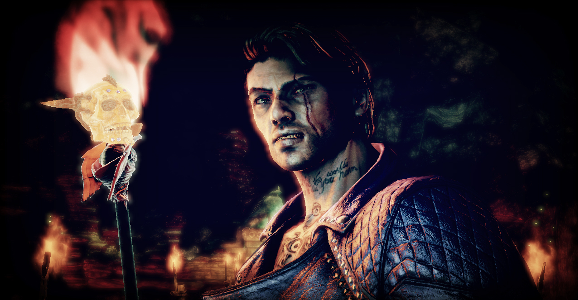
The East vs. West developers debate is a heated discussion no doubt. There are so many sub categories that either side can extrapolate and pick to death. However when it comes right down to it, I believe the differences go back to culture.
When looking at the respective cultures, it's easy to see that a favorite genre usually rises to the top. In the West, a large number of releases incorporate first person shooting as some sort of game play mechanic. That’s certainly no fault of the developers as much as it is the consumer. The sales of the Call of Duty series perfectly showcase America’s rabid taste for gun play. As far as Eastern studios, they predominately put out role playing games. Again thanks to the genre topping sales charts. Lengthy stories and near endless stat grinding appeals to Japanese gamers. This whole paragraph sounds like a large stereotyping of each culture and it truly is. There are a wide variety of games on either side of the ocean that any number of people may or may not play. However that doesn't change the fact that developers simply cater to the majority for the highest possible returns.

The tendencies also facilitate how developers tackle their respective projects. In the West, our fantasy worlds are mixed with a sense of realism. As Western developers attempt to capture that realism, a lot of graphic heavy elements such as lighting and texture resolution become the primary focus of their resources. Untold amounts of research and development dollars are dumped into reaching the latest and greatest in graphics technology. The East doesn’t necessarily believe in the same philosophy. The developers of Japan put their attention towards creating a look or art style that sets the mood or feeling for a game. Development money is funneled to artists such as Akira Toriyama (Dragon Ball Z, Dragon Warrior titles), Yoji Shinkawa (the Metal Gear Solid games), and Ayami Kojima (the Castlevania series). Just think about the last time you heard of an American artist getting recognition for their contributions to a game (outside of Ashely Wood for his work on a few Konami projects).
Western developers as individual studios have evolved over time. It used to be that Electronic Arts was known for working their employees exhausting hours with little compensation. Today, they are far more lax and respective of their people. Now it’s a Rock Star studio getting that complaint. Err...the point is that studios learned that people will come for opportunity and stay for money and project control. It’s why names such as Cliff Blezinski (Gears of War), Will Wright (Sim City), and David Jaffee (God of War) get to have their pet projects and speak openly about the industry and ego boast. In Japan, the mindsets of workers and studios are much different. Employees often feel loyalty to their employer regardless of where they start out. And even though some of them are rewarded for their efforts, the employees are stuck moving up a traditional corporate ladder. Sure it affords them more money, but little else in terms of game development and idea steering. A few interviews from Shinji Mikami and even Hideo Kojima make mention of this 'traditional' business structure. And even though the development teams that made certain games famous exist in name, they lack the key players that made the properties what they are. Team Sonic and Team Silent Hill for examples are shells of their former selves.

I was tasked with explaining how the East can modernize themselves with the West. They have tried by dropping projects on the doorsteps of American developers. The latest Castlevania game comes to mind. But the real change needs to happen within the corporate culture within Japan’s game industry. If a studio models themselves after a successful American, they might stand a chance at breaking the slow moving market that exists in Japan.